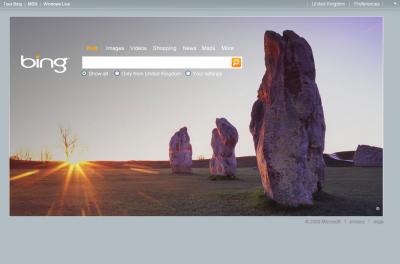

Two more big name tech giants are reportedly pushing to keep two of their products off a list of “gatekeepers” that are subject to new European regulations.
The Financial Times reported that Microsoft and Apple are pushing to keep Bing and iMessage, respectively, off the EU list of “gatekeepers” for the EU Digital Markets Act (DMA).
It was back in July 2022 when the European Parliament voted to adopt Digital Markets Act (DMA) and Digital Services Act (DSA) – landmark rules that impose significant regulatory burdens on the likes of Amazon, Apple, Alphabet, Meta, TikTok, X and others.
The EU’s Digital Services Act (DSA) focuses on how platforms handle user data and moderation, and it went into effect late last month.
Essentially any tech platform or search engine that has more than 45 million users per month in the EU, is classified as a very large online platforms (VLOP) or very large online search engines (VLOSE) under the Digital Services Act.
In April 2023, the European Commission published the names of 19 platforms that will face the strictest level of regulation under the DSA, naming 19 so called ‘Gatekeeper’ firms.
The European Commission specified the following were Very Large Online Platforms (VLOPS):
It also named the following as Very Large Online Search Engines (VLOSEs):
The EU considers these large platforms and search engines as ‘gatekeepers’, which are systemically relevant and therefore have special responsibilities in making the Internet a safe and trustworthy space.
This VLOP designation requires companies to do more to tackle illegal online content.
But now according to the Financial Times report, both Apple and Microsoft are privately (and separately) arguing that their services aren’t large or powerful enough to justify earning similar gatekeeper restrictions under the Digital Markets Act.
Companies face fines of up to 10 percent of annual global turnover for DMA violations and 6 percent for contravening the DSA.
According to the Financial Times, the European Commission is set to publish a list of designated DMA gatekeepers on 6th September, naming the companies themselves, as well as specific services they offer.
These DMA ‘gatekeeper’ platforms will be based on their revenue and user numbers, and will be required to meet a slew of interoperability and competition rules.
Apple, Microsoft, and others (Amazon, Alphabet, ByteDance, Samsung etc) are already on the list, but the European Commission will have to determine which parts of their product portfolios should be covered by so called gatekeeper status.
Once designated as a gatekeeper, the platforms will have six months, or until March 2024, to comply with the DMA’s rules.
According to FT, Microsoft is “unlikely” to dispute that its Windows platform meets the definition of a gatekeeper.
However the software giant is said to be arguing that Bing’s relatively small share of the search market (compared to Google) could only be further diminished if it must do things like offer users access to rival search engines.
Meanwhile Apple is reportedly working on methods that will open up iOS to third-party app stores and sideloading to comply with the anticipated rules.
Apple has previously warned these European rules would open a “Pandora’s box”, and now it is arguing that iMessage doesn’t hit the DMA’s user threshold of 45 million active monthly users and therefore shouldn’t have to interoperate with other messaging services.
However the Financial Times noted that while Apple hasn’t disclosed official iMessage numbers, outside estimates suggest iMessage could have a billion users worldwide, so it remains to be seen whether it convinces European authorities.
Apple and Microsoft are not the only firms challenging the EU over these new rules.
In July it emerged that Amazon is refusing to accept a gatekeeper designation from European officials, that ranks it alongside other major tech platforms such as Apple, Meta Platforms, and Twitter.
Amazon filed its challenge at the Luxembourg-based General Court, Europe’s second highest court, and is the first challenge from a big name tech player, after German online retailer Zalando sued the European Commission over the same issue in June.
Amazon has argued that it is not the largest retailer in any of the EU countries where it operates and that its bigger rivals in these countries have not been designated as such.
Nevertheless Amazon has already taken steps to comply with the act and has reportedly “created a new channel for submitting notices against suspected illegal products and content”.
American space agency prepares for testing of Boeing's Starliner, to ensure it has two space…
As UK and Europe develop closer military ties, European Commission says it will invest €1.3…
Zuckerberg seeks to revive Facebook's original spirit, as Meta launches Facebook Friends tab, so users…
Notable development for Meta, after appeal against 2021 WhatsApp privacy fine is backed by advisor…
First sign of shake-up under new CEO Lip-Bu Tan? Three Intel board members confirm they…
Trump's nominee for SEC Chairman, Paul Atkins, has pledged a “rational, coherent, and principled approach”…